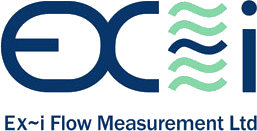A report generated by the Atlantic Council, a highly influential international think-tank based in Washington DC, has called for greater connectivity in the supply for LNG across Europe. It states that current and proposed pipeline development projects need to be moved forward and properly coordinated to ensure gas can flow freely across the continent. The report makes two main suggestions for how this can be accomplished and purports that the major benefits to these hugely ambitious projects will be greater competition with Russian pipeline gas and US LNG in addition to greater energy security for the whole of the EU as countries would no longer be dependent on gas supply from individual countries such as Russia or Norway.
Implementing Action Plans Already in Place
The first suggestion is the implementation of the Action Plan for Central Eastern and South Eastern Connectivity (CESEC) which is an agreement between fifteen EU and Energy Community countries to improve the gas infrastructure links to enable all of these countries to have access to gas supply from three different sources. The Memorandum of Understanding and its action plan, which will overcome the existing technical and regulatory issues preventing this goal from being achieved, was signed in Dubrovnik in July 2015 by EU Commission Vice-President and EU Commissioner and by the Energy Ministers from Austria, Bulgaria, Croatia, Greece, Hungary, Italy, Romania, Slovakia, Slovenia, Albania, Former Yugoslav Republic of Macedonia, Serbia and Ukraine (Bosnia and Herzegovina and Republic of Moldova will sign at a later date). Specifically, the report mentions six CESEC projects which it suggests will require further financial and diplomatic support to implement.
Creating a Pipeline Backbone
The second main recommendation is for the creation of a gas supply ‘backbone’ connecting the Polish LNG regasification terminal at Świnoujscie with Croatia’s planned LNG terminal at Omisalj. This will also include a crossover point at Varosfold in Hungary to allow it to work alongside the BRUA system, a gas pipeline network connecting Slovakia, Hungary, Romania, Ukraine and Bulgaria currently under development, and connect to the main central European hub at Baumgarten in Austria. Primarily, this would involve upgrading existing interconnections and initiating planned ones. Its purpose would be to fuel commercial enterprises and create greater energy security across Europe.
Further Recommendations
Ongoing projects, such as the Trans-Adriatic Pipeline which will connect Turkey’s border with Greece to southern Italy, are providing access to cheaper and more secure supplies of gas across Europe. This report suggests ways to extend the reach of gas networks by addressing the issues of funding and corruption as well as the above. It goes on to make proposals to end the relative isolation of the northeastern Baltic members of the European Union: Estonia, Latvia, and Lithuania and end much of Europe’s dependency on individual countries such as Russia, who could stop supplying gas at any time due to a wide number of factors. Ex~i Flow provide gas flow measuring equipment to the LNG industry. To find out how we could help your LNG operation, call +44 (0)1243 554920.
